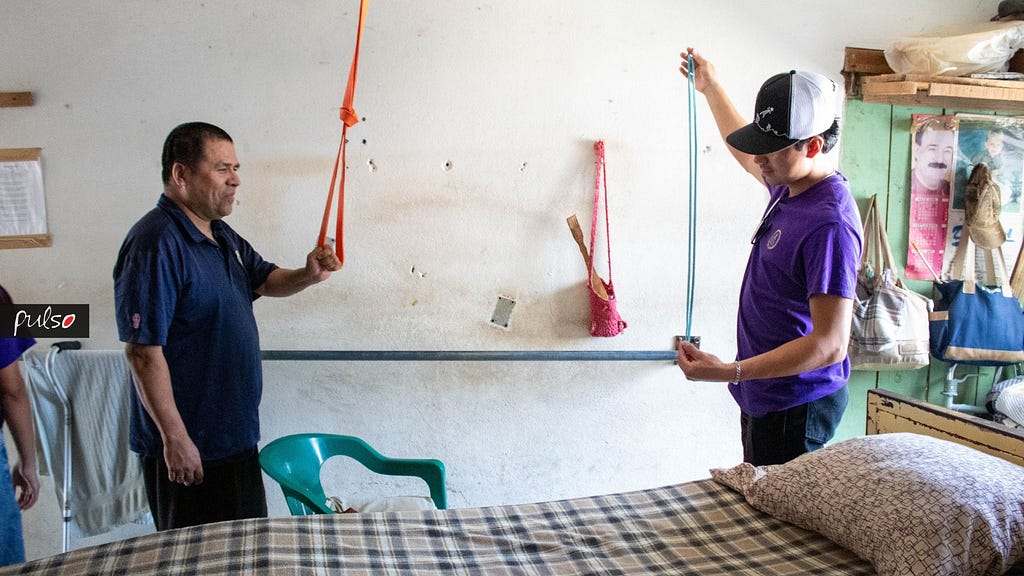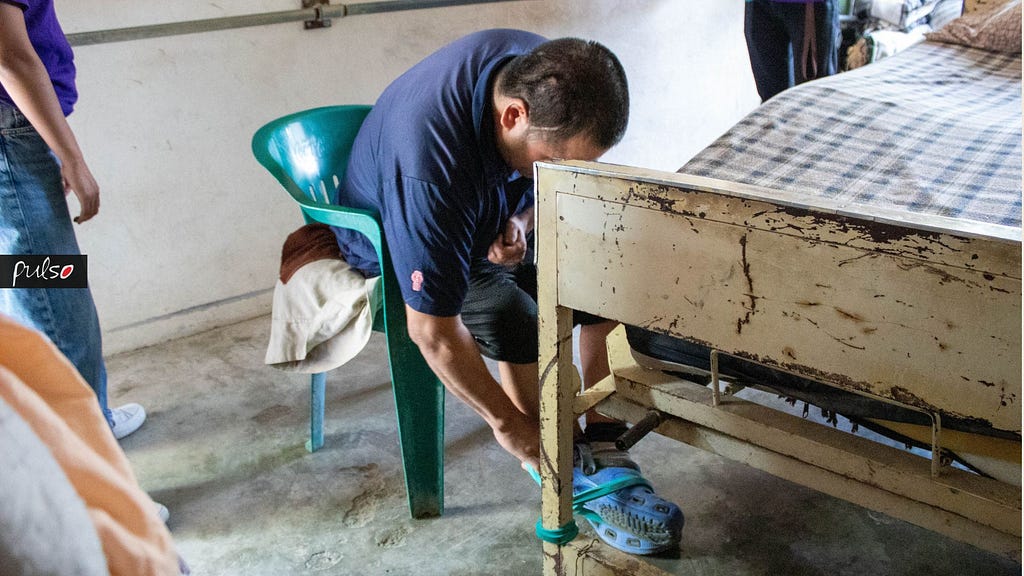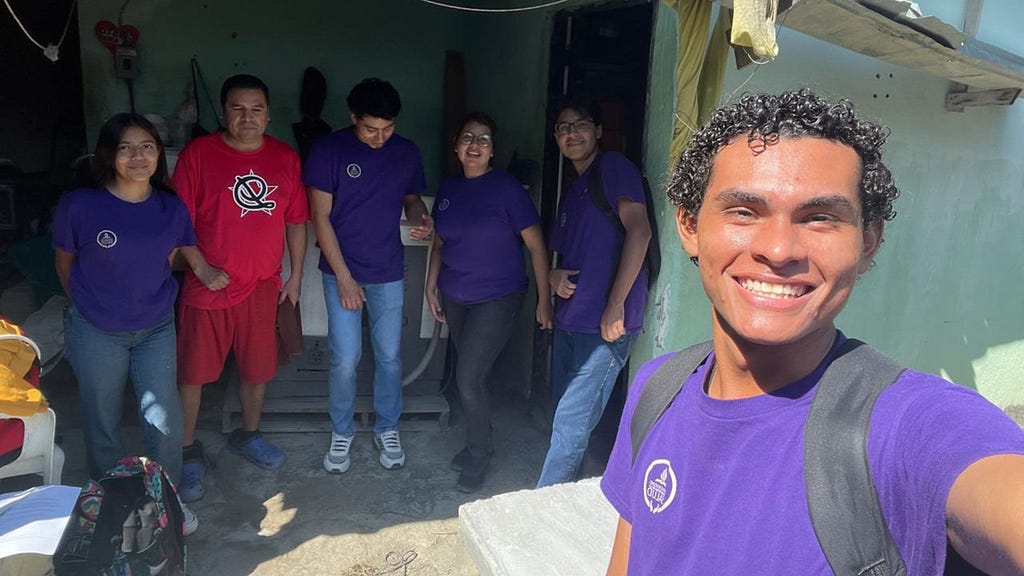How One Man Got Back on His Feet
Montemorelos University has been key in Aaron Salinas recovery from a coma and immobility.
June 24, 2025 | Montemorelos, Nuevo León, Mexico | Laura Marrero and Inter-American Division News
“Doctors told me I would end up in a vegetative state… but today I can move, bathe, heat my food, and live independently,” Aaron Salinas recently shared. His story is not only a testimony of resilience, but also a reflection of Montemorelos University’s support throughout his journey, school officials said.
A Challenging New Reality
In 2014, a violent assault left Salinas in a coma for several weeks. After regaining consciousness, he faced serious physical and neurological side effects. Since then, his life has changed radically, he acknowledged.

Aaron Salina engages in therapeutic exercises at his home with the support of a student from Montemorelos University, Mexico.
[Photo: Lisandra Vicente/UM]
Life-Changing Visits
Every week, teams of students visit Salinas’ home in the Martínez Domínguez neighborhood. At first, they helped him get out of bed, bathe, change clothes, and perform basic physical exercises. His body, immobile for years, gradually began to respond. Movements that once seemed impossible—like bending a leg—are now part of his daily routine. Today, Aaron walks with support, moves safely around his home, and most importantly, has regained his autonomy and dignity.
This semester, the support from other students increased. “Students in the health area who take the community service course continued helping him with physical therapies, but also followed up on other issues, such as the recovery of their disability card, which had been canceled due to lack of documentation,” school offices reported. “After collecting the required documents, managing appointments, and helping him to complete the process of application, they managed to get his card reactivated,” they shared.

Aaron Salinas bends over as students from Montemorelos University assist in during a recent physical therapy session. [Photo: Lisandra Vicente/UM]
The team supporting Salinas also tackled issues that had hindered his mobility and safety. For example, they installed a concrete lid over an exposed drain to prevent tripping, added support bars and dumbbells so he could exercise at home, and organized weekly food collections to ensure his nutritional needs were met. Additionally, psychology students provided emotional support following the passing of Salinas’ parents, helping him process his grief and regain motivation.
Behind every step forward, Salinas’ sister, María del Carmen, has played an indispensable role. She has remained by his side since the incident, Salinas shared. “With limited resources and a willing heart, she has been his caregiver, his constant companion, and his voice amid so many challenges,” school officials said. “The support from the university not only transformed his life—it also gave his sister some much-needed relief.”
María del Carmen described the impact of the school’s involvement, saying, “The students have been a true support for us as a family. From their very first visit, we felt their willingness to help. Each time they came, they stayed to talk, prayed with him, and made him laugh. They brought back that spark in Aaron’s eyes that we hadn’t seen in a long time. Now, he wakes up more motivated and with a greater desire to keep moving forward.”

A group of students take a photo with Aaron Salinas after a physical therapy session. [Photo: Lisandra Vicente/UM]
Luis Martelo, one of the medical students who worked with Aaron, admitted that at first, they weren’t sure how to interact with him. “We were shy,” he said, “but little by little, we became friends. Aaron is someone who taught us more than we could ever give him.”
This human connection has become a defining feature of the project, which aims to train professionals who not only treat physical symptoms but also walk alongside individuals through life’s challenges, school officials noted. Martelo agreed. “Community service should always be part of our curriculum because it teaches us to be professionals with compassionate hearts. By following Jesus’ method—gaining people’s trust, meeting their needs, and then pointing them to Him—we become real-life missionaries,” he said.